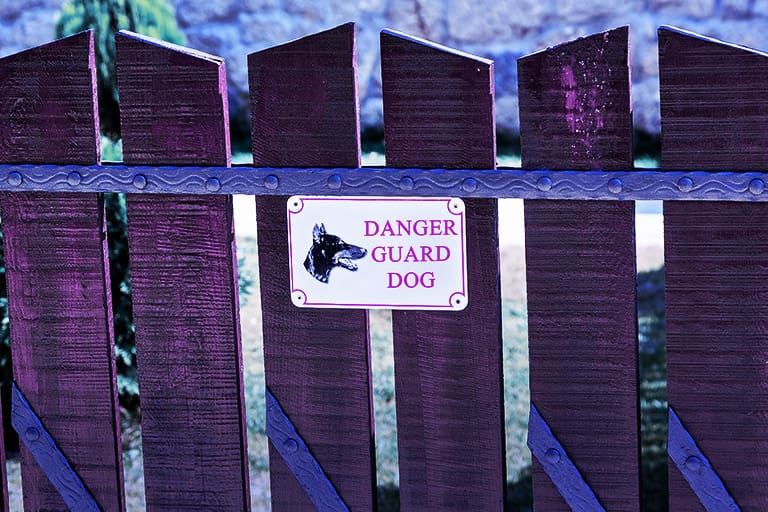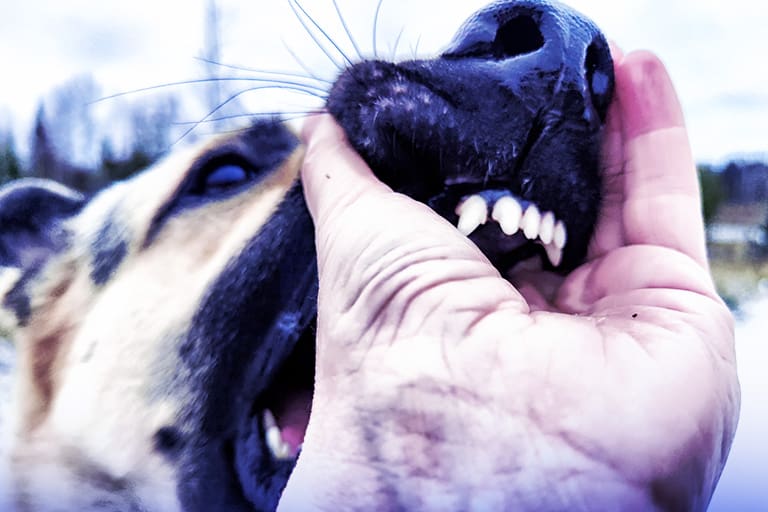The Key Differences Between Maryland and Virginia Dog Laws
We feel it’s important for anyone, regardless of their circumstances, to occasionally note and consider the ways in which their way of life and living situation is unique from others. In the greater Washington DC area, for instance, we cross state borders far more often than the average American. This may seem inconsequential at first glance. For most of us, crossing the state line into Maryland, DC, or Virginia, just means a commute or a recreational trip. But crossing from one state to another can mean serious differences in the law. One great example of these variances pertains dog bites and expectations pertaining to responsible pet ownership. Staying informed of the differences in Maryland and Virginia dog laws is essential to responsible pet ownership for any dog lover traveling regularly between states. Today’s blog post from Malloy Law offices will examine and unpack this multifaceted issue.
Virginia: The One Bite Rule
The first and most immediately recognizable difference in Maryland and Virginia dog laws is the “one bite rule.” This Virginia law means that a dog owner is not exposed to liability for the injured person’s medical bills on the first occasion their dog bites or otherwise injures someone. The logic here is that a dog owner with no prior knowledge of their pet’s aggressive behavior should not be held responsible for behaviors they had no way of knowing about. However, this is not an automatic screen against liability. If the injured person is able to prove that the dog owner should have known that their pet could be aggressive or that the dog owner acted carelessly to the point of negligence, the dog owner may be liable for damages.
Maryland: Strict Liability
Maryland has no “one bite rule” in dog bite cases. In this state, a strict liability standard is applied to dog bite cases. The law assumes that you knew, or should have known, that your dog was hazardous if it kills or seriously hurts someone. This facilitates the injured party’s ability to sue you. You have a chance to provide proof that you were unaware of your dog’s danger. However, the law presumes you knew or should have known unless you can demonstrate that you were ignorant of this.
Identifying and Classifying Dangerous Dogs
In Maryland
Per the People’s Law Library of Maryland: A dog is dangerous if the dog:
- Has killed or gravely injured (defined as a physical injury that results in broken bones or disfiguring lacerations requiring multiple sutures or cosmetic surgery) someone without any reasonable provocation
- Is judged to be dangerous by a county or municipal corporation’s appropriate entity, and after the determination:
-
- bites someone
- kills or severely injures another domestic animal on another person’s property
- attacks without provocation.
If your dog is considered dangerous by the law, you must follow certain rules on when you can:
- Leave it alone on your property
- When it can leave
- How to notify others when you sell or give it away
You are legally liable if your dog runs at large and injures someone, kills someone, or damages property, unless the victim was engaged in any of the following behaviors:
- Trespassing or attempting to trespass on the owner’s property, or engaging in any other criminal activity
- Engaging in illegal activity, or attempting to do so, against any anyone
- Teasing, tormenting, abusing, or provoking the dog
Landlords may also be held liable for dog injuries suffered on their property. Landlords should take reasonable action to respond to reports from tenants concerning dangerous dogs.
In Virginia
If the authorities believe a dog poses a risk to the public’s health and safety, Virginia will classify the dog as dangerous. If a dog attacks, bites, or kills another dog or cat, or if it attacks, injures, or injures a human, it is classified as a dangerous dog.
A dog won’t be considered dangerous under certain circumstances. When a dog attacks another animal, it is not deemed harmful if one of the following conditions is met:
- The incident takes place on the dog owner’s property
- The other cat or dog is not seriously hurt
- The owner of both animals is the same person
When a law enforcement or animal control officer finds that a dog assault only resulted in a single bite or nip that caused just abrasion, scrape, or other minor injury, the dog is not deemed dangerous.
- Committing a crime on the owner’s property
- Willfully trespassing on private property
- Provoking, tormenting, or physically abusing the animal, or had a history of doing so
- Bitten because the dog was defending or protecting itself, its offspring, the dog’s owner, or the owner’s property
A dog also won’t be classified as dangerous if it’s part of a legal hunt, an organized and lawful dog handling event, or if the court rules that the dog isn’t a threat to the community.
Maryland: County Level Laws
There is no state level legislation concerning “dangerous” dog breeds such as pit bulls. Maryland does advise owners of large or potentially dangerous dogs to educate themselves on legislation specific to their county. There is also no ban on landlords banning certain dog breeds from their rental properties.
Contributory Negligence: A Key Similarity
One key similarity in Maryland and Virginia dog laws is that both Maryland and Virginia are contributory negligence states. This law means that if an injured person can be shown to be even one percent responsible for their injury, they can be barred from recovery of any damages related to their injury. This is especially relevant in dog bite or dog attack cases, as any petting or touching of the dog in question, even with the owner’s consent, could be argued as provoking the dog.
How Malloy Law Can Help
If you or a loved one has suffered a dog bite injury in Maryland, Virginia, or Washington DC, Malloy Law can help. Our experienced attorneys will assess your case free of charge and plot a course to maximum recovery. We’ll factor in the full value of your medical bills, lost wages, and pain and suffering. Contact Malloy Law today and let’s win your case.





